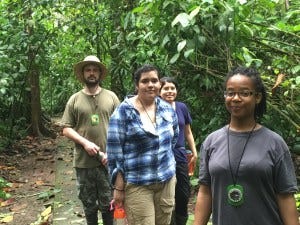The lost opportunity cost of overcommitment
My sabbatical officially started a few days ago. I was half-expecting a kind of weight to lift. But my brain isn’t letting me have any of that.
For the last year or so, I’ve been stockpiling things “for sabbatical.” Now, I’m looking at the weight of that list.
I’m betting that you don’t want to hear the list. (But hey, I wrote a post in 2013 describing my manuscripts in the works. Most of them are still in the works, and for each that has been done, it’s been replaced with new one.)
I could spend my entire sabbatical chained to my laptop and submit about a dozen papers. Perhaps depending on where you are in your career, you might think this is:
a wonderful situation
an horrific situation
business as usual
“isn’t that what grad students and postdocs are supposed to for you?”
Last spring, I wrote a post saying how I thought I really needed a sabbatical. In that post, I explained how I am my own postdoc. Back then, I told myself that I couldn’t use a sabbatical to work off a backlog of papers because I need to pick up the some skills that contemporary scientists are using that didn’t really exist when I was in grad school.
Some PIs who have been around for as long as I have — Ph.D. in 1999, for those counting — don’t need to pick up new sets of skills. They need to understand the theory and some of the pragmatics, but there are some skills that they don’t need because their people have those skills.
I’m guessing the people who run massive genomics institutes may not have touched a pipet in a decade. There are people who are doing long-term monitoring of vertebrates in remote forests, but may not have ever touched a digital camera trap. There are community ecologists with papers filled with analyses done in R, but might not even have R installed on their laptops. This is not necessarily a bad thing. I don’t intend this as an insult. There are generational skills, and for some things it just isn’t efficient or reasonable for senior PIs to pick up expertise in new methods.

I’m working with this crew at this writing. Not a bad way to start sabbatical!
I’m writing this from my office at La Selva Biological Station in Costa Rica (though this time without my F1 because he is still in school), and there is a bunch of equipment in this office that we use, but I myself haven’t touched in a long time. PVC cutter, thermal cycler, iButtons, winklers. But here’s the rub: the undergraduate and Master’s students in my lab can pick up those things in a jiffy,but those things do not make a scientific paper. I don’t have the apparatus of postdocs and PhD students that can do all the other parts.
I’m using iButtons a lot now in my lab. But really, that’s not true, because I’m not using iButtons. I have yet to ever program or download data from one. That’s a pretty straightforward thing for students working with me, in a few hours my students figure it out and get up to speed. But they lack the full suite of capabilities that makes a scientific paper happen, when it comes to the more sophisticated statistics, the writing, and some of the benchwork (identifying critters to species at the scope). That’s where I’m the bottleneck.
For a PI in a research university, it’s downright expected that a lot of this stuff happens by other members of the lab. It’s downright expected, I think.
But to be a PI in a primarily undergraduate institution, you need more skills.
That’s why I’m looking at using my sabbatical to get caught up with skills that grad students have been learning in the past ten years. The same skills that my fellow PIs at research institutions don’t necessarily need to pick up.
This is a problem that I’ve gotten myself into. I’ve overcommitted, and now am paying the price by getting caught up.
The real cost to me isn’t a cut in productivity. That’s fine, that’s expected as a part of my job. The real cost is in the lost opportunities. New projects that I’m not starting because I already have too many going on. I’m not thinking about new ideas because my time is spent thinking about old ideas. (These are ideas which are old to me, but still unpublished and still cool. They’re old to me, but not to the world.)
I’ve cooked up too much science, and my plate is full. In this sabbatical, I should be back in the kitchen inventing new recipes, and maybe prospecting for some new ingredients. Maybe invent a new cuisine. But it’s hard to even think about it with a plate full of science. That’s the cost of me getting behind — the opportunity cost of being overcommitted.

